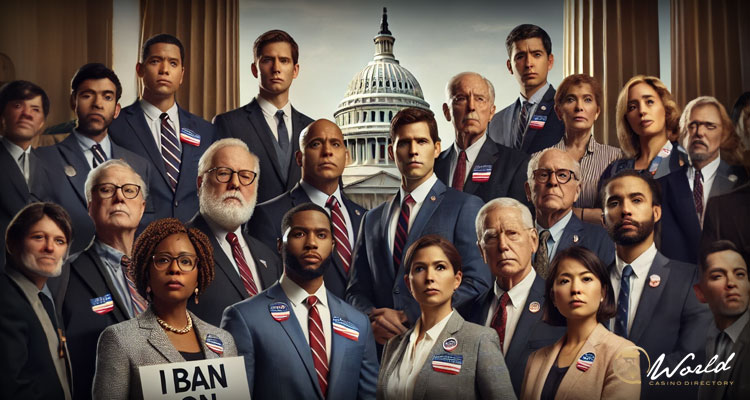A group of Democratic lawmakers is advocating for a ban on betting in relation to the 2024 Presidential election, emphasizing the potential for such activities to undermine the democratic process. This concern is highlighted in a recent communication to Rostin Benham, the Chairman of the US Commodity Futures Trading Commission (CFTC), where they expressed fears about the influence of large-scale betting on electoral integrity.
The letter, dated August 5 and published by CoinMarketCap, is signed by notable Democratic Senators including Jeff Merkley, Richard Blumenthal, Chris Van Hollen, Elizabeth Warren, Sheldon Whitehouse, and Representatives Jamie Raskin, John Sarbanes, and Eleanor Holmes Norton. They argue that allowing high-stake bets on elections, especially by influential figures who may also contribute to political campaigns, could severely impact public trust in election outcomes.
The legislators pointed out that “allowing billionaires to make extraordinary bets while contributing to a specific candidate or party, and significant political figures betting on elections with non-public information will further undermine trust in the election process.” They contend that the commercialization of election outcomes through betting transforms the electoral process from a civic duty into a profit-making activity, thereby corrupting the very foundation of democratic engagement.
Large Sums Wagered
This initiative by the lawmakers comes in the wake of substantial betting activities reported on platforms like Polymarket, which saw over $500 million wagered on the “2024 Presidential Election Winner” and $319.7 million on the “2024 Democratic Candidate.” Polymarket itself faced a $1.4 million penalty settlement with the CFTC in January 2022 for operating such markets without proper registration, yet the volume of bets indicates a significant ongoing engagement from global users.
The letter also highlights a critical concern about the potential of these large bets to not only distort public perception but also to directly influence election outcomes, thereby eroding democratic values. The lawmakers’ call for action is urgent, with the presidential election just three months away, and the betting trends showing a tight race between Republican candidate Donald Trump and Democratic candidate Kamala Harris.
This push reflects a broader concern among politicians and the public alike about the integrity of electoral processes at a time when financial interests and political outcomes are increasingly intertwined. As the debate continues, the CFTC’s response and its impact on the betting landscape will be pivotal in shaping public confidence in how the 2024 elections are conducted and perceived.
A similar debate has taken place in the United Kingdom earlier this year, where several high-profile politicians were involved in a betting scandal after having placed wagers on the election date or on the outcome of particular electoral races in which they were involved.



